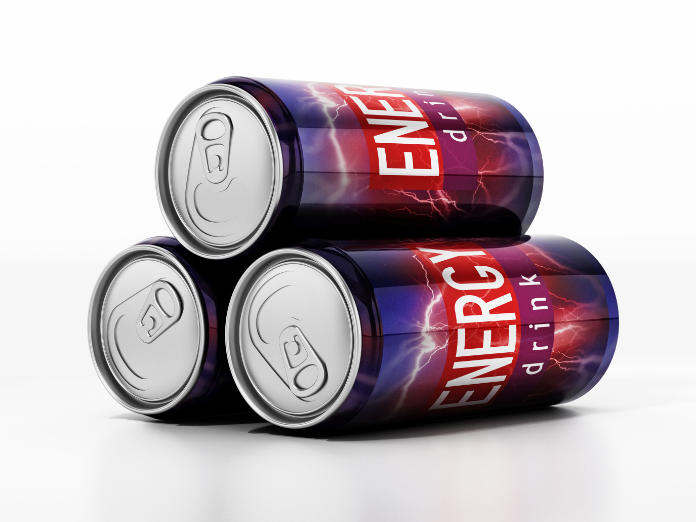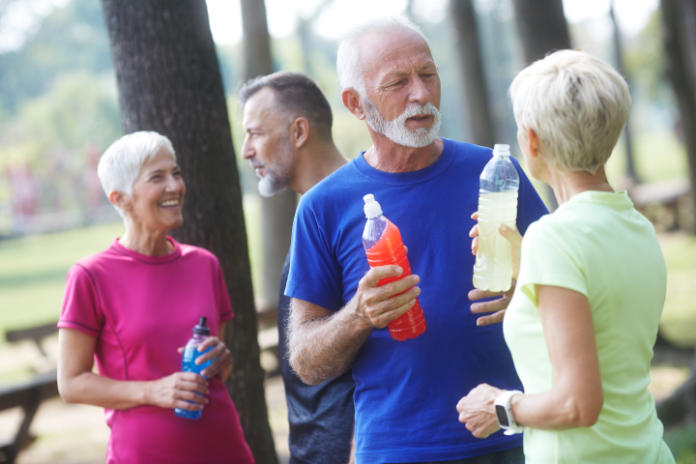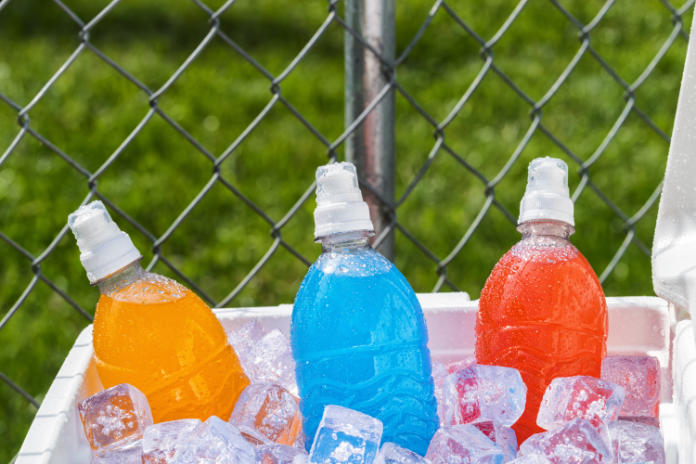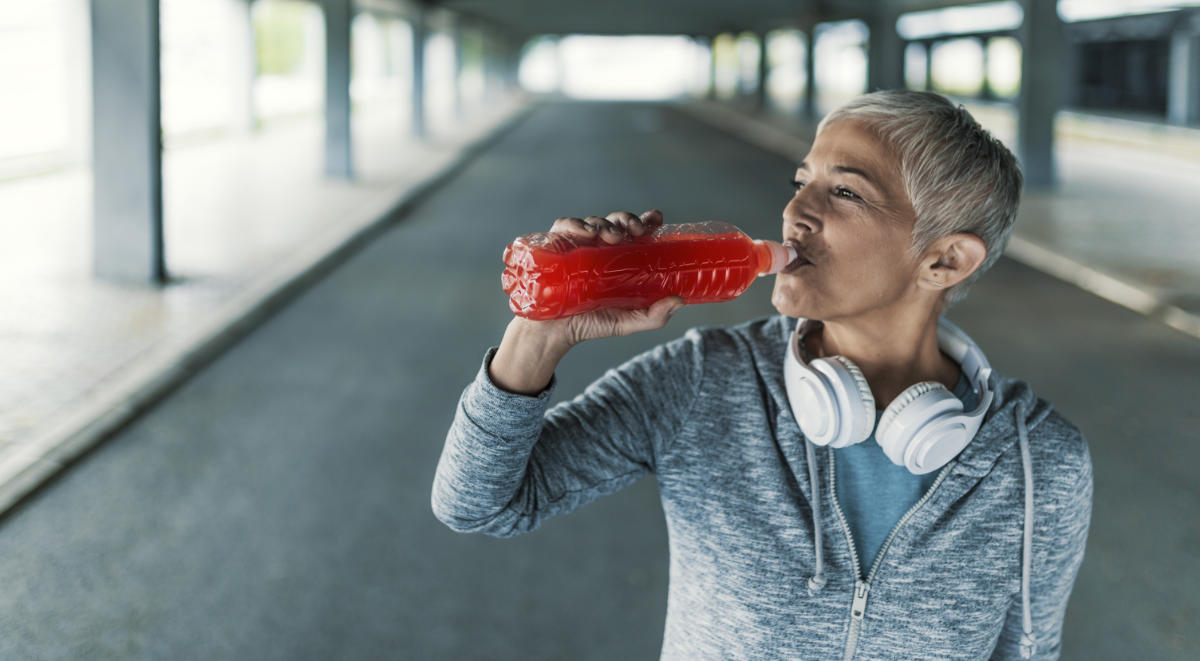They’re sweet, they’re sugary and they’re designed to give you that all-important pick-me-up when you’re running on empty, but how can energy drinks affect your health?
Artificially sweetened drinks are considered a major contributor to health conditions like diabetes, obesity and tooth decay. But what is it about the combination of caffeine and sugar that makes energy drinks so bad for the body? We asked health experts to explain…
What happens to the body when you consume an energy drink?
According to nutritionist Caroline Blackmore, the intense sweetness of energy drinks causes blood sugar levels to spike. This triggers the pancreas to produce insulin.
“At first, you’ll have a ‘high’ from the sugar for about an hour, but afterwards you’ll feel a sudden drop in energy after absorption, leaving you feeling even more tired and fatigued.”
Blackmore explains that this is a vicious and expensive circle, as once the sugar has worn off, you begin to crave the next unhealthy pick-me-up. “This point is usually where people reach out for more sugary-laden food or drink to make themselves feel better, repeating the cycle,” she says.

How long does it take to feel the effects of energy drinks?
“From the first sip it can take anywhere from 10 to 45 minutes for the caffeine to start to be absorbed, and you’ll find that your blood pressure and heart rate will increase.
“Even though the sugar has been fully absorbed after about an hour of drinking it, the caffeine will continue to have an effect. Caffeine can remain in your bloodstream for 12 hours after you’ve drunk it, depending on what you’ve eaten, your weight and your personal body composition.”
So even if you limit your intake to 1 energy drink first thing in the morning, it’s possible it could still be keeping you awake at 11pm at night.
What are the risks of drinking energy drinks regularly over a long period of time?
Harley Street nutritionist Rhiannon Lambert says: “As well as offering zero nutritional value, one of the big health risks around energy drinks, noted by the NHS, is that they can cause caffeine overdoses. This can lead to a number of symptoms, including: Palpitations, high blood pressure, nausea and vomiting, convulsions and, in some cases, even death.
“You’re also increasing your risk of Type 2 diabetes, late miscarriages, low birth weight and stillbirths in pregnant women, and neurological and cardiovascular system effects in children and adolescents.”
“Energy drinks can also cause attention-seeking behaviour, lead to poor dental health and, of course, obesity.”

Why does this happen?
Lambert explains that energy drinks contain a variety of other ingredients, such as guarana, and that the effect of long-term regular consumption of the combination of the substances found in energy drinks is still pretty vague.
“Several people have developed heart problems after consuming energy drinks, possibly due to drinking too much caffeine or mixing energy drinks with alcohol,” says Will Hawkins, a nutritionist from Push Doctor.
“Resistance to insulin (a chemical needed to regulate blood sugar levels) can also be a major issue with overusing energy drinks, if they contain large amounts of sugar.”
The caffeine indulgence many receive from energy drinks is particularly concerning to Geeta Sidhu-Robb, a nutritionist and founder of Nosh Detox. “In certain cases, it can snowball into other issues such as anxiety, headaches, migraines and insomnia,” she says.
“As a result of its addictive tendencies, people can also become overly-dependent on drinking them. This can spiral out of control, similar to the effects of drugs and nicotine.”
What happens when you drink multiple energy drinks in one go?
“When you consume large quantities, you can face the prospect of caffeine toxicity. This will not only see your heart rate rapidly increase, but will see a significant spike in blood pressure, dizziness, tremors, and risk of strokes. These can, of course, prove fatal,” says Sidhu-Robb.
Why is it particularly bad if you mix energy drinks with alcohol?
The popularity of mixing energy drinks with alcohol is pretty worrying, says Sidhu-Robb. “The alcohol slows down your heart rate, whilst the energy drink speeds it up, creating an imbalance which causes your heart to go into overdrive. This increases the risk of cardiac arrest.
“What’s more, the combination also means users do not feel the impact of usual intoxication – which can lead to an increase in criminal offences such as drink driving.”
So how can we get an energy boost without resorting to energy drinks?
According to Sidhu-Robb, many of us do not realise there are much healthier alternatives to energy drinks to get a boost.
“These include protein shakes, green tea and healthy smoothies, which in moderation, can provide you with more effective and positive energy without the negative side effects.”
Also, more generally, making sure you get enough sleep and take regular exercise during the day.

What’s actually in energy drinks?
Next time you grab a can of Monster or Red Bull, look out for these 7 ingredients regularly found on the labels of energy drinks, so you know what you’re really guzzling…
1. Caffeine
Your average can of Red Bull or Monster has around the same amount of caffeine in it as a cup of coffee. It prompts your body to produce adrenaline, which gives you that wide-awake, I-can-do-anything feeling.
The risks: Too much caffeine can give you the shakes and jitters, make your heart race and, potentially, give you diarrhoea. As a stimulant, it can also increase your blood pressure.
2. Sugar
It can appear under quite a few different names – glucose, sucrose, fructose and, in ‘sugar-free’ versions, sweeteners like aspartame, acesulfame K, and sucralose will pop up in its place. It’s the culprit for giving you a high energy boost, followed by a sugar crash.
The risks: Dozens of studies have linked aspartame to cancer, cardiovascular disease, dementia and Alzheimer’s disease, seizures and strokes, as well as negative effects such as intestinal dysbiosis, mood disorders, headaches and migraines. Consuming excessive sugar can damage your teeth and lead to weight gain, which comes with its own accompanying health problems.
3. Taurine
Taurine is an amino acid and antioxidant, that is naturally produced in the body already, and found in muscle tissue.
The risks: Has been linked to increased heart strain, but is considered fine for human consumption when taken in the correct quantities. If you’re drinking multiple energy drinks, you might exceed the recommended amount.
4. Glucuronolactone
A carbohydrate and derivative of glucose, glucuronolactone is generally found in connective tissues and is a stimulant.
The risks: There has been limited research into its effects so far, either positive or negative.
5. Inositol
A mood-booster that facilitates the body’s use of the happy hormone serotonin, it’s also used in the treatment of depression, schizophrenia and nerve pain, amongst others.
The risks: Deemed safe for human consumption. Any side effects are mild and can include nausea, stomach pain, tiredness, headache, and dizziness. Most side effects start to occur only with doses greater than 12g per day.
6. Additives and artificial colours
They boost flavour and give energy drinks their weird toxic glow.
The risks: A lot of people now try to avoid unnecessary additives and artificial colours. They are associated with allergies, hyperactivity, jitteriness and can make some people feel nauseous.
7. Vitamins B6, B-5 and B12
These guys help boost red blood cell production and are said improve your mood.
The risks: In fact, this one’s pretty good for us.
You may also be interested in…







































































